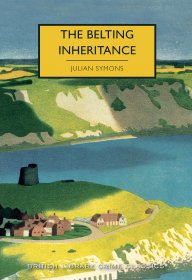

★★★
It was only a matter of time, wasn’t it? Behold: a speculative Brexit novel! Despite being weary of the whole Brexit conversation, I was curious to see how this particular author might project its results into the future. Chris Beckett is a smart and perceptive sci-fi writer, and I’ve read several of his other books, although, so far, I’ve only posted on Dark Eden. He’s interested in human society, the way it develops, and the way that small events can knock history onto different paths: in short, an ideal person to tackle the far-reaching potential effects of Brexit. The two tribes of his title refer, on a superficial level, to the Leave and Remain Brexit factions; but they also reflect the British world of two centuries later. Here we meet Zoe, a London-based historian who is researching the foundations of her society, using a cache of 2016 diaries alongside the rich digital records of the period. I’d come to the book assuming that we’d be spending much of our time with Zoe in the future, so I’ve got to admit I was a little disappointed to discover that it’s predominantly set in 2016: a Romeo-and-Juliet story framed by the Brexit divide.
Continue reading

















